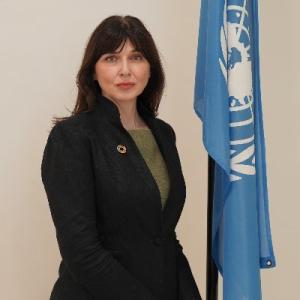It is my great pleasure to join you this morning at the inaugural Global South NGO Forum, in beautiful Baku.
The world today is marked by uncertainty and instability, as global challenges continue to reshape political, economic, and social landscapes. These challenges influence how nations collaborate and adapt to address shared concerns.
Despite these challenges – or perhaps because of them - we are seeing civic engagement and advocacy remain strong, reminding us that the Sustainable Development Goals (SDGs) and the global promise of Leaving No One Behind can only be realized through cooperation, innovation, and solidarity.
And nowhere is this solidarity more essential than amongst the NGOs in the Global South. Across countries, the NGOs serve as the backbone of progress - amplifying marginalized voices, advocating for policy reforms, and delivering critical services. While each organization plays a crucial role, the true force of change lies in our ability to unite - across sectors, across borders, and across disciplines.
Distinguished Participants:
At COP29 in Baku last year, we saw civil society uniting to demonstrate the strength of collective action. The COP29 NGO Coalition was a great example of NGOs from the countries most affected by climate change coming together to ensure that civil society perspectives shaped climate negotiations.
From discussions on climate finance to adaptation strategies to equitable solutions, the NGOs collaborated to reinforce the principle that meaningful progress is only possible when civil society has a voice in decision-making.
Distinguished Participants:
With a little bit over five years left until 2030, the world is off track in achieving the SDGs. Progress on nearly half of all SDG targets is weak and insufficient, and over one-third have stalled or regressed. The annual SDG funding gap has widened to USD 4.2 trillion, making it increasingly difficult for developing countries to mobilize the necessary resources.
While some nations have made strides, particularly in areas like education and healthcare, global inequalities persist. Many countries still face major challenges in achieving goals related to climate action, poverty reduction, and sustainable consumption.
The urgency for accelerated efforts has never been greater. Governments, civil society, and the private sector must work together to scale up financing, strengthen policy implementation, and protect civic space to ensure meaningful progress.
Friends:
Strengthening NGO alliances is not only about working together – it is about protecting the very spaces that make collaboration and innovation for sustainable, greener, future possible.
As the United Nations in Azerbaijan, we look forward continuing to work with the civil society – along with all stakeholders – to support Azerbaijan achieve its national development priorities and the SDGs.
Thank you.



